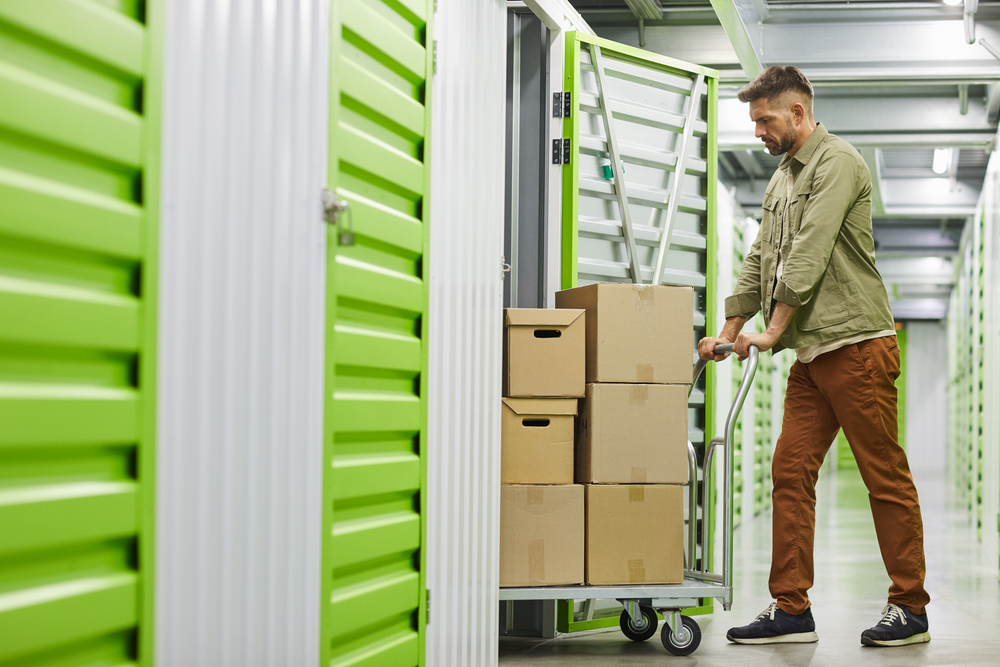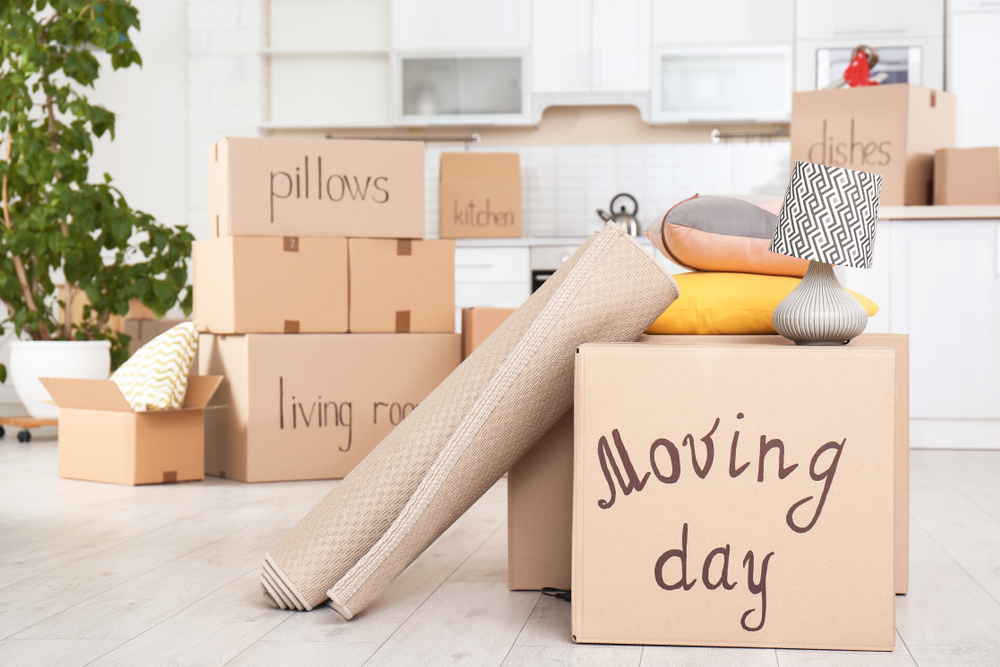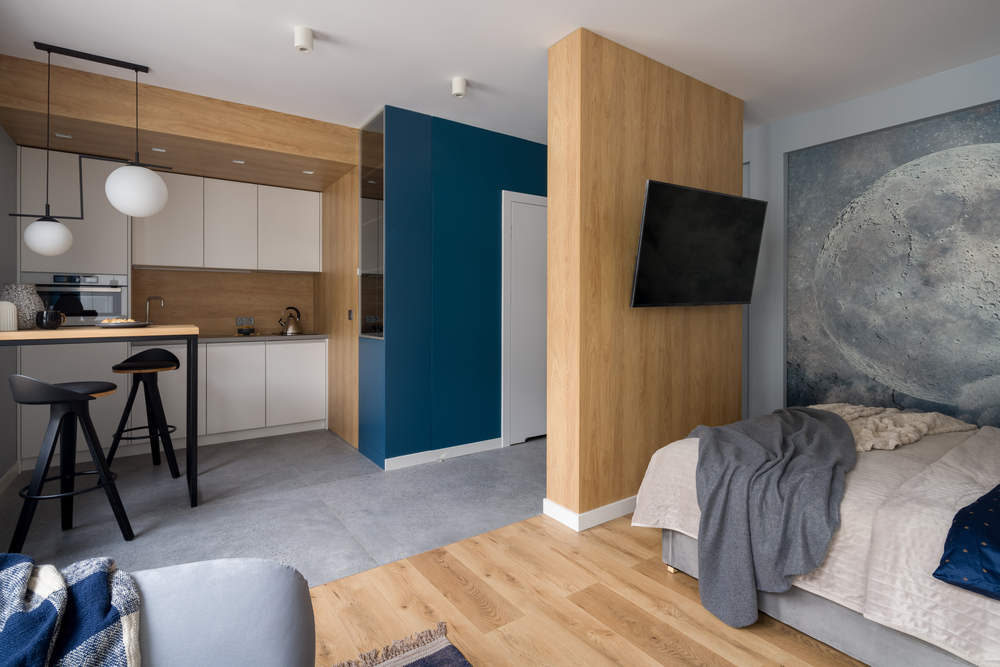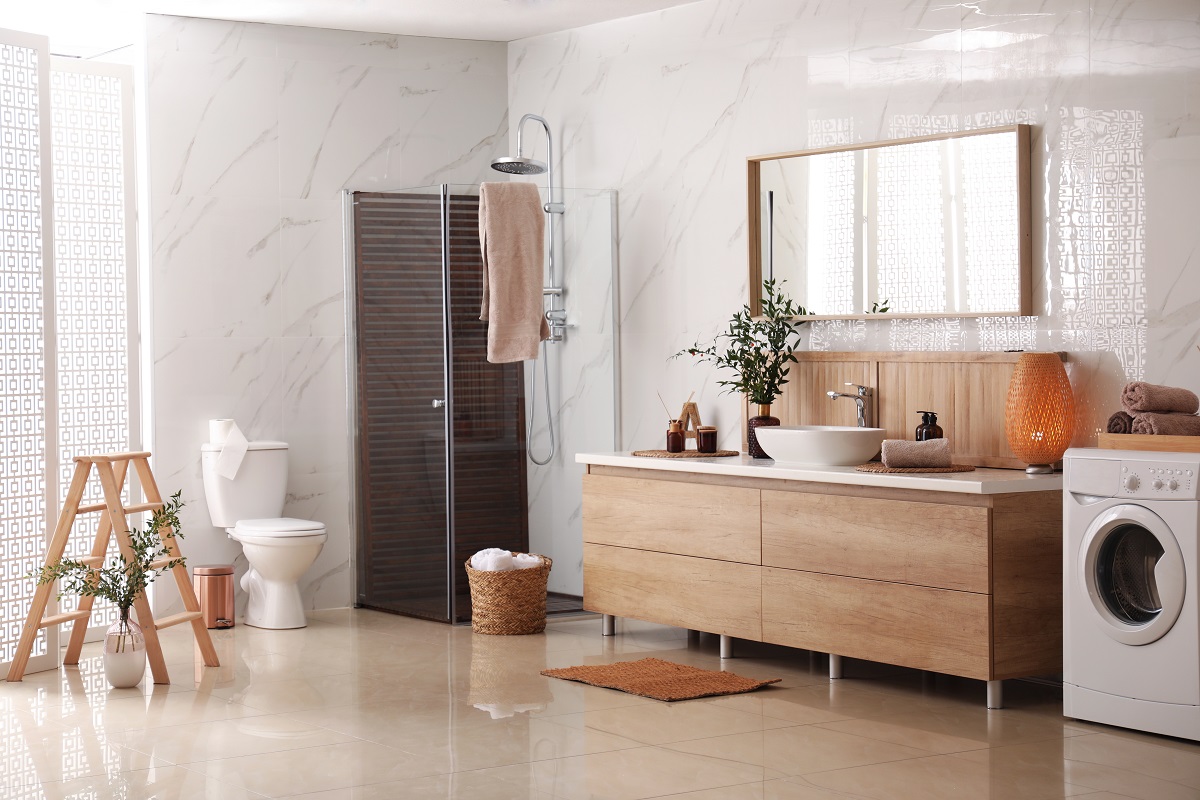
The Beginner’s Guide to Renting a Storage Unit for a Move

When it comes to decluttering your home, you’ve tried it all, from KonMari to the Minimalism Game. Still, you have a lot of stuff—perhaps too much stuff. It seems like your apartment is about to burst and you have no space to keep it all. Renting a storage unit gives you some room to breathe without requiring you to say goodbye to your beloved tchotchkes.
A storage unit also comes in handy if you’ve got a move coming up, especially if you’ve embraced the digital nomad lifestyle and want to explore the world while you work. You can stash your belongings in a unit and feel confident that they’ll be waiting for you, safe and sound, whenever you decide to return.
Why rent a storage unit?
Some people rent self-storage units because they have a lot of belongings and no room to keep those possessions at home. Another reason to rent storage is to stash away seasonal items, like holiday decorations or summer clothing, when they aren’t needed.
The most popular reason for renting a storage unit, though, is moving. You may need an extra place to store your stuff if you’re moving abroad or long-distance or if you’re downsizing. In some cases, people rent storage as a temporary solution. You may need to rent a unit to hold your belongings while you wait for renovations to finish or if you’re between closings.
If you’re moving in with a partner for the first time, you may rent a storage unit while you merge your households and decide whose furniture and small appliances to keep.
Is renting a storage unit worth it?
Storage isn’t free and may not be the right option for everyone. Depending on the value of the items you’re storing and how easy it is to replace them, you may be better off selling or donating your belongings before a move rather than paying to store them.
Asking yourself a few questions can help you determine whether a self-storage rental is worth the cost:
- How valuable are your belongings?
- How far is your move?
- Do you plan on returning?
- How long will you need storage?
Often, renting a unit is worth it if you have valuable or irreplaceable items and you plan on returning to retrieve them at some point. For example, if you plan to move to another city for a year to work and will return home after that, you’ll want your items waiting for you when you move back.
A storage unit may also be worth the cost if you live in a small space and want to keep out-of-season items out of the way. It’s usually cheaper to tuck away your summer or winter clothes in the off-season than it is to buy an entirely new wardrobe each year.
If you plan on moving far away for an extended period or aren’t sure when you’ll return, you may be better off selling your stuff rather than putting it into storage.
What do you need to rent a storage unit?
You don’t need much to rent a unit from a storage facility. The facility will most likely ask for a copy of your government-issued photo ID, such as your passport or driver’s license. You’ll also have to sign a contract that outlines the terms of the rental agreement.
Read the contract carefully before you sign so you understand the cost of the unit and what’s expected of you. The storage facility may require you to purchase insurance to protect your stuff. If you have a renter’s insurance policy, that might extend to the items you keep in the facility. It could also be the case that you need to purchase a separate policy to protect stored items.
What size storage unit do you need?
Storage facilities offer units of varying sizes to accommodate a wide range of customers. You can safely rent a smaller-size unit if you only have a few things to store. But, if you plan on packing up the entire contents of your apartment or home, it’s better to err on the side of too big rather than too small.
While the dimensions of the storage space will vary based on the company, here’s a look a some of the unit sizes commonly available:
- 5 by 5 feet: A 5-by-5-foot storage space is similar to the size of a small walk-in closet. It’s ideal if you have a few boxes to store or are looking for a place to keep your out-of-season clothes.
- 5 by 10 feet: A 5-by-10-foot storage space is about the size of a large closet. It will hold several boxes and a few pieces of furniture, such as a bed or couch.
- 5 by 15 feet: A 5-by-15-foot space is about the size of a bedroom. If you’re a minimalist, it might safely hold the contents of your studio apartment.
- 10 by 10 feet: A 10-by-10-foot storage space can often comfortably hold the contents of a one-bedroom apartment.
- 10 by 15 feet: A 10-by-15-foot unit will hold the contents of a two-bedroom apartment.
- 10 by 20 feet: A 10-by-20-foot storage unit can hold the contents of a three-bedroom home. It may also accommodate a small car or recreational vehicle.
- 10 by 30 feet: The largest unit size can typically hold the contents of a three-bedroom home, plus a full-sized car, truck, or RV.
What to look for when renting a storage unit
While your storage needs might be slightly different from someone else’s, there are a few common features to note when choosing a self-storage facility:
- Security: You want your stuff to stay safe, so security is important. Look for a facility that has locks on its units and that has other security measures in place, such as cameras and alarms. Having a person onsite at all times is ideal, too.
- Access hours: Some facilities provide 24-hour access so you can head to your unit and check in on your beloved possessions at 3 a.m. if you want. Others have more limited access hours. While 24/7 access isn’t necessarily a must-have, the facility should be open at times that are convenient to you.
- Climate control: Not everyone needs a temperature-controlled, humidity-controlled unit. But if you’re storing anything that’s the least bit sensitive to heat, moisture, or freezing temperatures, you’re going to want to opt for the climate-controlled option. Since climate-controlled can mean many things, confirm whether the unit is heated and cooled or just one or the other.
- Drive-up access: If you rent a ground-level unit, you may be able to drive your vehicle directly up to it, making loading and unloading easy. At some facilities, drive-up access isn’t an option for any units, particularly if all the units are inside a larger building.
- Storage location: You want to choose a facility and storage unit that is easy to get to. Otherwise, your stuff is likely to languish, forgotten in storage.
- Vehicle storage: Some facilities allow for vehicle storage, while others don’t. The size of your unit may dictate whether you can keep your car or another vehicle inside it.
- Self-storage vs. full-service storage: At a self-storage facility, you’re in charge of loading your items into the unit and keeping tabs on them. With a full-service storage company, the company will arrange to pack up and transport your possessions to the unit. Some also make a list of your storage inventory for you. Full service typically costs more than self-storage but can be a convenient option.
How much does a storage unit cost?
Storage unit prices vary based on location, company, and storage unit sizes. The average monthly cost is around $180, but there are a lot of variances. If you rent a smaller unit, you can expect to pay a lot less than someone who rents a medium-sized or larger unit.
The unit’s amenities affect its price, too. The average cost for a climate-controlled storage unit is slightly higher than the average cost for a non-climate-controlled unit. Units that allow for vehicle storage also typically cost more than those that don’t let you store a vehicle.
The length of your storage rental can also affect the overall cost. If you rent on a short-term or month-to-month basis, you may pay more monthly than someone who rents long-term.
In addition to the monthly rent, consider additional costs when deciding if a rental is cost-effective. Some facilities charge a hefty late fee or nonpayment fee if you don’t pay on time. Others may charge extra for storage unit insurance.
What are the best storage units?
If you’re looking for a place to rent a storage unit, you have a lot of options. Some of the best storage companies out there are:
- Extra Space Storage: Extra Space has units ranging in size from 5-by-5 to 10-by-30. It offers climate-controlled units and options for RV, vehicle, and boat storage.
- Life Storage: Life Storage has multiple unit sizes available and the option to store your stuff in a climate-controlled space.
- PODS: PODS brings the storage unit to you, then carries it away for secure storage until you need it again. You can also use PODS to safely and conveniently move your stuff from your old home to your new home. Fun fact: When you join Landing, you get a 10% discount on PODS.
- U-haul: U-haul does more than rent moving trucks and vans. It also offers storage facilities to keep your stuff safe and secure.
Join Landing for a stress-free move today
If you’re thinking about moving somewhere new, every Landing apartment comes fully furnished, so you don’t have to worry about moving big pieces of furniture or lots of stuff around once you embrace the digital nomad life. You can stash your belongings in a storage unit and explore the country unencumbered once you join Landing.
Interested in living with Landing but want some help covering the costs of a storage unit? For a limited time, we are offering up to $2,500 to help you start living with Landing. All you have to do is tell us about your expected moving costs, book a flexible stay with us, and provide receipts from your move, and a credit will be applied to your account over the next 12 months.
Click here to save money on your storage unit and other moving expenses.









